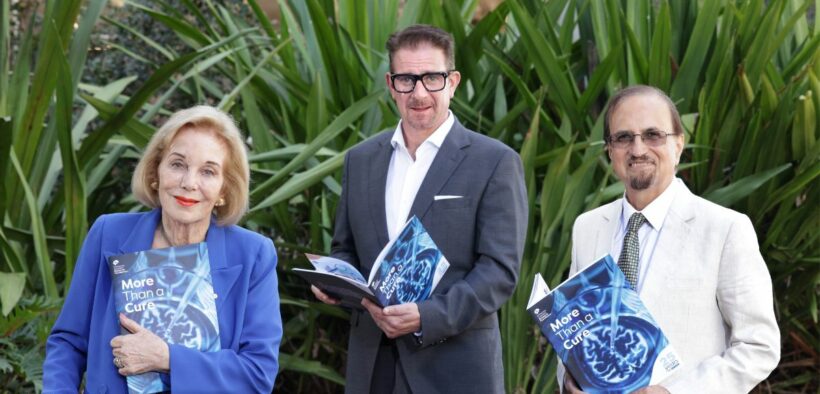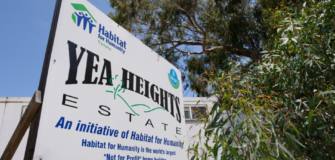Dementia Australia Research Foundation is marking 25 years of supporting Australia’s best-emerging researchers to explore, innovate and advance the field of dementia research with the release of its More than a Cure: 25 Years of Impact report.
The report highlights some of the more than 380 game-changing research projects that have advanced because of more than $31 million from Dementia Australia Research Foundation over the past quarter century.
Dementia Australia Research Foundation Chair and Dementia Australia Patron Professor Graeme Samuel AC said the Foundation had spent 25 years funding revolutionary projects to expedite medical breakthroughs and to improve the lives of people living with dementia.
“During this time, they’ve enhanced our understanding of dementia at a cellular level and have developed models of care that are improving life for people living with dementia and their carers,” said Professor Samuel.
“Dementia Australia Research Foundation funds researchers across all stages of their career but maintain a particular focus on supporting Australia’s talented new and early career dementia researchers.”
“A recent survey of grant recipients over the past 25 years found that 75 per cent were still working in dementia research and 97 per cent had mentored new researchers in the field.”
One of the researchers whose career was supercharged when she received funding from Dementia Australia Research Foundation, is Dr Rachel Buckley, who was awarded a two-year Post-Doctoral Fellowship in 2014.
Dr Buckley said the Fellowship was a huge step in her research career, which has ultimately led to her running her own laboratory at Massachusetts General Hospital, which is Harvard University’s largest teaching hospital.
It’s in this lab, in the Department of Neurology, where Dr Buckley is producing cutting-edge research on how dementia impacts men and women differently.
“We’re one of the first groups to show that women are very different to men in their risk for pathology,” Dr Buckley explained.
“We’ve found over and again that older women show much higher levels of tau, a brain protein that becomes toxic in dementia.
“Our most recent finding is that even middle-aged women have higher levels of tau, which we think is related to menopause. The use of hormone therapy may have a dual role in reducing or increasing the risk of dementia.”
Professor Samuel said the Dementia Australia Research Foundation’s work wouldn’t be possible without the generous support of donors large and small.
“All funding for Dementia Australia Research Foundation is donated by members of the public and by private and philanthropic organisations. Thank you to everyone who has donated over the past 25 years,” said Professor Samuel.
Navarra Venues CEO, Sal Navarra, is one such donor, who has raised more than $1 million for Dementia Australia Research Foundation since 2015.
The Sarina Navarra Project Grant, which is awarded through the Dementia Australia Research Foundation, was created in memory of Sal’s mother Sarina, who passed away in 2022. In 2023 the Sarina Navarra Project Grant was awarded to a project exploring if intermittent fasting may reduce the risk of developing Alzheimer’s disease.
“Dementia Australia does phenomenal work, and we’re honoured to collaborate with them to drive innovation and improve the lives of those living with dementia,” said Navarra.
Dementia Australia Patron Ita Buttrose AC OBE and a former President of the Dementia Australia Research Foundation said that over the past 25 years, the Foundation had played a significant role in enhancing people’s understanding of dementia.
“It’s predicted that the number of Australians living with dementia will approach 800,000 in the next 35 years.”
According to Buttrose, with continued commitment and support from researchers and donors, they will hopefully be closer to a medical breakthrough and, ultimately, a cure.
Download your own copy of the report here!




























































































































































